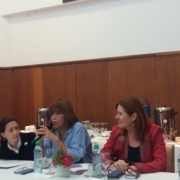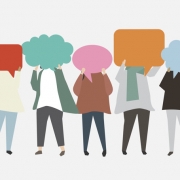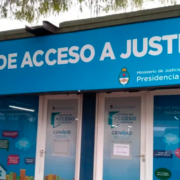We participated in the consultation of UN Women for Beijing + 25
In view of the 25th anniversary of the Beijing Platform, UN Women is pushing at the international level for States to review the progress and challenges surrounding women’s human rights. For this, a meeting was called with civil society organizations, together with the National Institute of Women (INAM).
“Below, we offer a google translate version of the original article in Spanish. This translation may not be accurate but serves as a general presentation of the article. For more accurate information, please switch to the Spanish version of the website. In addition, feel free to directly contact in English the person mentioned at the bottom of this article with regards to this topic”.
The Beijing Declaration and Platform is a program developed in 1995 with a large participation of civil society, to give tools to States, the private sector and the third sector, to promote gender equality. Every five years, a revision process is carried out, at a general level and at the level of the States, to finally make recommendations that allow to continue advancing in the fulfillment of the measures established in said platform.
The national reviews contribute to the global review and evaluation that UN Women will prepare and present during the 64th session of the Commission on the Status of Women (CWS 64), which will take place in March 2020 in New York . The reports are composed not only of the information provided by the State, but also by the contributions of civil society. In this context, INAM, the agency in charge of coordinating gender policies in Argentina, openly called social organizations, the women’s movement and trade unions.
Considering that the Beijing Platform has been a key document for international policy, it has been revised in the light of the Sustainable Development Goals by 2030. In this sense, four axes were identified in which Beijing + 25 and the 2030 Agenda:
- Inclusive development, shared prosperity and decent work
- Eradication of poverty, social protection and social services
- Eradication of violence, stigmas and stereotypes
- Participation, responsibility and institutions with a gender perspective
Regarding inclusive development, the challenge we face has to do with the difficulties faced by women and diversities in their access to work and, within it, the limits to their possibilities of promotion. This is linked to the lack of equal opportunity policies at the level of public policies and within these companies, according to research carried out in media companies and advertising agencies. Specifically, the critical axis is maternity and care, due to the lack of conciliation policies regarding parental leave, extension of leave time, leave for care (due to illness, family disability, care for the elderly), flexible forms of work (home office) or problems around day care centers. In the event that these types of actions are implemented, they respond to particular demands, so they are not institutionalized or systematized.
Regarding the eradication of violence, stigmas and stereotypes, we are particularly concerned that the public bodies set up to watch over situations of media and symbolic violence – applying Law 26.485 and 26.522 – present irregularities, even when there are commitments assumed by the government and resources from international cooperation to strengthen the fight against gender violence. This is especially noticeable in the ways open to society, for example, the mouths of denunciation.
In our experience, the Media Observatory of INAM and ENACOM have little or no response level to complaints, while the Ombudsman’s Office, with greater activity in this regard, continues to accept it since 2015.
As we understand that the eradication of gender violence implies its visibility and the transformation of naturalized sociocultural patterns and reproduced in daily practices, we make recommendations for the inclusion of awareness, training and gender perspective training in the media and advertising agencies , starting from the areas of university or tertiary professional training.
Finally, on the point of institutions with a gender perspective, we consider that the enactment of the Micaela Law is a good way to incorporate it into State bodies. However, we must insist on adherence by the provinces and state institutions.
Likewise, we recognize public and private schools as institutions endorsed by the State to provide formal education. As such, they must abide by the legislation on the implementation of the ESI and be responsible – and therefore susceptible to being sanctioned – in cases where actions are taken that impede the right to receive or provide sex education.
Within the consultation, topics related to the importance of including the rights of sexual diversity, in particular of transgender people, labor inclusion, vocational training and representation and political participation were also mentioned in all the axes. In order to celebrate the 25th anniversary of what happened in Beijing, the anniversary finds the feminist movement in the midst of the struggle to continue expanding the rights of women, transgender people and dissent.
More information
Country review processes for Beijing + 25:
Beijing Declaration and Platform for Action
Author
Carolina Tamagnini
Contact
María Cecilia Bustos Moreschi, cecilia.bustos.moreschi@fundeps.org





